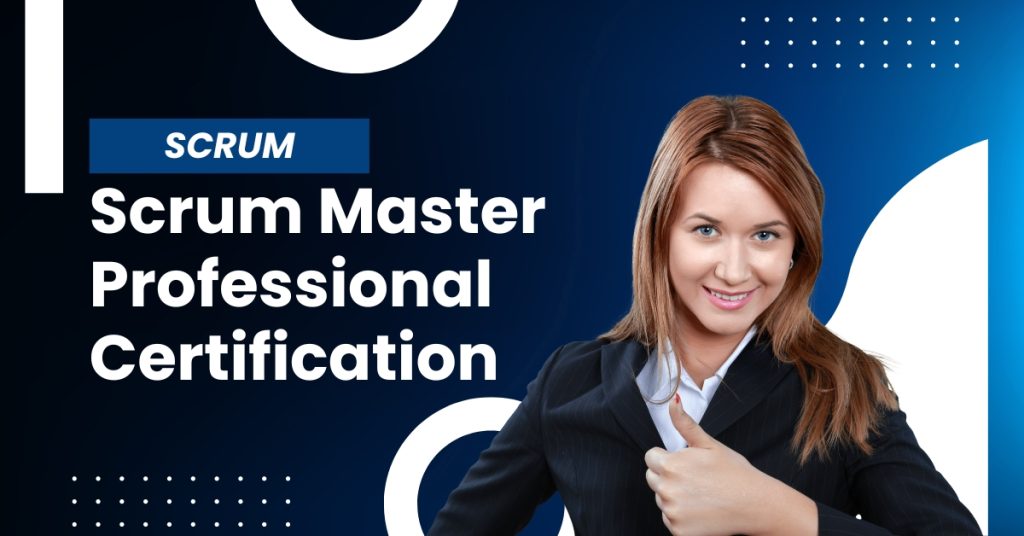
1. Introduction: What is Scrum?
- Definition of Scrum: Briefly explain what Scrum is, focusing on its role as an Agile framework for managing complex projects.
- Importance in Modern Project Management: Discuss why Scrum has become a popular choice among organizations, highlighting its benefits like flexibility, transparency, and improved productivity.
- Role of a Scrum Master: Provide an overview of the Scrum Master's role within a Scrum team, emphasizing their responsibilities in facilitating processes, removing impediments, and ensuring the team adheres to Scrum practices.
2. Understanding Scrum Master Professional Certification
- Overview of Scrum Master Certifications: Discuss the various Scrum Master certifications available in the market (e.g., CSM, PSM, ASM), focusing on how the Scrum Master Professional Certification stands out.
- Accrediting Bodies: Highlight the organizations that offer Scrum Master Professional Certification, such as Scrum.org, Scrum Alliance, and other reputable institutions.
- Why Get Certified?: Explain the benefits of obtaining a Scrum Master Professional Certification, including career growth, increased earning potential, and enhanced credibility in the job market.
- Key Competencies Covered: Provide a detailed overview of the skills and knowledge areas covered in the certification program, such as Scrum principles, team management, and project facilitation.
3. Detailed Breakdown of the Scrum Exam
- Structure of the Scrum Exam: Describe the format of the Scrum Exam, including the number of questions, types of questions (multiple-choice, true/false, etc.), and time limits.
- Core Topics Covered: Identify the key areas tested in the exam, such as Scrum roles, events, artifacts, and principles.
- Exam Preparation Tips: Offer practical tips for preparing for the Scrum Exam, such as using study guides, taking practice exams, and participating in study groups.
- Common Challenges and How to Overcome Them: Discuss common difficulties candidates face during the exam and provide strategies to tackle them.
4. The Path to Becoming a Certified Scrum Master
- Steps to Certification: Outline the step-by-step process for becoming a Certified Scrum Master, from enrolling in a certification course to passing the Scrum Exam.
- Choosing the Right Training Program: Provide guidance on selecting a reputable training provider, considering factors like course content, instructor experience, and student reviews.
- Importance of Practical Experience: Emphasize the need for hands-on experience in a Scrum environment, suggesting ways to gain this experience (e.g., internships, volunteer work, or participation in Scrum projects).
- Continuing Education and Recertification: Explain the importance of ongoing learning and recertification to stay up-to-date with the latest Scrum practices and maintain certification.
5. Real-Life Applications of Scrum Master Professional Certification
- Industry Demand: Discuss the growing demand for Scrum Masters across various industries, including IT, finance, healthcare, and more.
- Success Stories: Share success stories of professionals who have advanced their careers by becoming Certified Scrum Masters, highlighting their journey and achievements.
- Impact on Teams and Organizations: Explain how a Certified Scrum Master can positively influence team dynamics, project outcomes, and overall organizational success.
6. Conclusion: Is Scrum Master Professional Certification Right for You?
- Recap of the Benefits: Summarize the key advantages of earning a Scrum Master Professional Certification.
- Who Should Consider Certification?: Identify the types of professionals who would benefit most from this certification, such as project managers, team leaders, and aspiring Scrum Masters.
- Final Thoughts: Encourage readers to evaluate their career goals and consider whether obtaining a Scrum Master Professional Certification aligns with their professional aspirations.
7. Call to Action: Take the First Step Towards Certification Today!
- Encouragement to Enroll: Motivate readers to take action by enrolling in a Scrum Master certification course.
- Resources and Links: Provide links to reputable certification programs, study materials, and other resources to help them get started on their certification journey.
8. FAQs: Frequently Asked Questions About Scrum Master Professional Certification
- Answering Common Questions: Address common queries such as:
- What are the prerequisites for Scrum Master Professional Certification?
- How much does the certification cost?
- How long does it take to prepare for and pass the Scrum Exam?
- What is the difference between a Scrum Master and a Project Manager?
- Additional Tips: Offer additional tips for success, such as managing study time and staying motivated.
Comments (0)